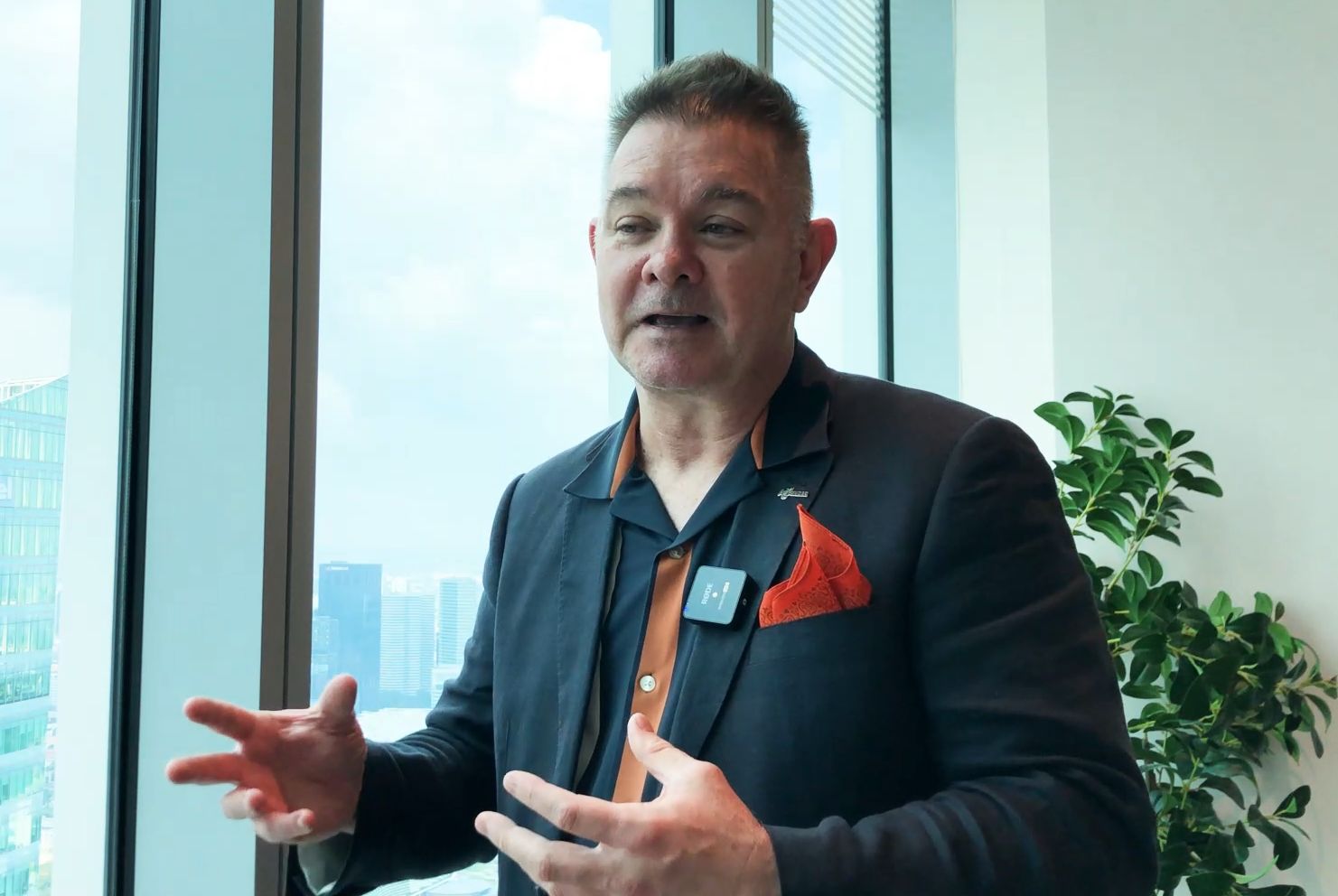What makes a great pitch? At the most basic level, say investors quizzed by AgFunderNews in Singapore last week, entrepreneurs need to identify the problem they are addressing, spell out the market opportunity, and explain why they are best-placed to solve it.
A great pitch also requires energy and passion, a well-thought out go to market strategy, an innovative and differentiated product or business model, and some evidence of market interest, validation or traction.
As for red flags in pitches, not listening, over-inflated numbers, and the inability to clearly articulate what your business does were repeatedly cited by the investment team at AgFunder (AgFunderNews‘ parent company) and other investors we spoke to at the Asia-Pacific Agri-Food Innovation Summit and the GROW Impact Accelerator Demo Day.
What makes a great pitch?
“It’s about the ability of the founders to tell a story. If they’re not getting their message across clearly, if I can’t understand what they’re talking about… whether it’s the business, the business opportunity, or the potential of the technology, I’m not going to be interested to pursue that founder and find out more.” Michael Dean, partner, AgFunder
“A great pitch tells you in the very beginning what they do, and they do it very clearly in a couple of sentences: ‘We are a company that does this…’ A great pitch is also one that will explain very quickly why they can make money and why they are different to the competition.” Manuel Gonzalez, partner, AgFunder
“Founders should be honest and open about potential risks and challenges. Being defensive or evasive in your responses erodes trust in your pitch and undermines the credibility of your team.” Darren Leong, senior associate, Clay Capital
“If it’s a founding team, we like the framework of a builder and a persuader. So sometimes it’s the same person, sometimes two or even three different people. But a founding team needs to have this component of building…knowing the technology, being able to do R&D or science or scale up, but then also have the ability to pitch not only to investors and customers but also to employees in order to attract talent.” Michal Klar, partner, Better Bite Ventures
“A great pitch is a balancing act between understanding what you do and who you’re pitching to. I think it’s important to be masters of facts, but at the same time also register your relevant experience and address your audience’s challenges. I would say avoid pitching as a single person in a team pitch. Often teams that have a senior person doing all the talking appear less trustworthy than one where there’s chemistry between the team members that are pitching.” Darren Leong, senior associate, Clay Capital
“Generally listening skills are very important. But I think we also like to see the founders who have strong convictions, so it’s a balancing act between being open and listening when it’s really necessary, but not necessarily deviating from your convictions.” Michal Klar, partner, Better Bite Ventures
“We’re looking for founder market fit. We want to see some background or experience that that individual brings to that particular segment of the market…why that person should be the person to solve the challenge.” John Friedman, Asia director, AgFunder
“It’s good to add a personal touch. For example, if you’re pitching to an audience in a developed market, but your story is about the developing markets, about smallholder farmers, then it might be good to bring your audience – who might not be very familiar with the market – on a journey with you. Tell them a story that engages them, that brings out the emotional aspects of your pitch.” Angela Tay, senior investment associate, AgFunder
“I really like to see founders that are very open, very authentic about the way they pitch. It might be rehearsed, it might be really well structured, but they still bring some of their personality and some of their passion and some of their real stories, some of their learnings as well, including the mistakes that they made along the way and what they have learned from them.” Michal Klar, partner, Better Bite Ventures
“I really like to be taken on a journey. So whoever’s doing the pitch needs to be able to tell a story and build a narrative around their business that gets me excited and interested. They also have to have a history of having done something really exceptional, whether that be research, whether that be a previous startup, or just something that indicates to me that these are really special individuals and people that I should be taking an interest in.” Michael Dean, partner, AgFunder
“We expect founders who pitch to us to know their market, market size, market specifics, very well, even if they’re at the very beginning of their journey. That’s something that they can and are able to learn from desk research or asking around.” Michal Klar, partner, Better Bite Ventures
“The big picture is great, but ultimately it’s your ability to get that technology or product into consumers’ hands. So we really want to drill into the ability of founders to drive adoption of their technology or the adoption of their product in the marketplace. So understanding how they’re going to get to revenue, how quickly they’re going to get to revenue is really important.” Michael Dean, partner, AgFunder
What kind of things in a pitch tend to raise alarm bells with investors?
“What would raise red flags for me would be overinflated numbers, when a founder is communicating his TAM [total addressable market] or potentially revenues in the first year or five-year projections. If the founder is not receptive [to feedback] and unwilling to even take some constructive criticism, that’s also going to be a challenging conversation and not the basis for a strong relationship moving forward.” John Friedman, Asia director, AgFunder
“The first one [red flag] is if they don’t explain immediately what they’re doing and you have to figure it out in the middle of the pitch.” Manuel Gonzalez, partner, AgFunder
“We avoid entrepreneurs who don’t know what they don’t know.” Tao Zhang, cofounder, Dao Foods International
“My pet peeve when I listen to a pitch is founders being unable to address how they can capture the market share that they say that they’re going to get. More often than not founders are going to say, ‘Oh, we’ve got a multi-million-dollar TAM [total addressable market] or SAM [serviceable addressable market] or SOM [serviceable obtainable market].’ But when you ask a follow up question, ‘So can you tell me how you’re going to grow your business into a multi-million-dollar business from the market size that you’ve just described?’ They can’t.” Angela Tay, partner, AgFunder
“It worries me if a founding team doesn’t take very well to advice. As a venture fund, we pride ourselves on building and fostering a harmonious and collaborative spirit with the founders we are investing in… there should be some sort of willingness and openness to take inputs that are relevant and helpful for the business. So we would flag companies that are not very open to listening to advice; the lack of coachability is an issue for us.” Darren Leong, senior associate, Clay Capital
“[Starting a business] is really, really challenging. It’s very, very difficult. You’re going to come across situations that you haven’t come across before. And that’s where your investors can be a really useful resource. So the inability of a founder to take advice or to not seek out advice is a real concern for investors.” Michael Dean, partner, AgFunder
“In the first few conversations, if you start to have a sense that the founder has very fixed ideas of how to do things, and you get the sense that he or she may not be very receptive to me, I think that is a red flag. You’re going to be on an emotional journey with this founder for the next few years. You’ve got to like each other, you’ve got to like working with each other. And if it’s someone who’s not very receptive at the outset, very likely, that person is not going to be receptive to ideas down the road.” Angela Tay, partner, AgFunder
“Pitching can be difficult. I know it’s hard. There’s that old saying about people that have a greater fear of public speaking they have of death. But it’s part of the startup world. It’s what you’ve got to do in order to raise money.” Michael Dean, partner, AgFunder





